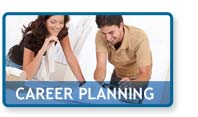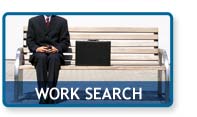Article

WHAT DO THEY ‘REALLY’ WANT TO KNOW?!
This is the day you have been waiting for – interview day. You have prepared for this interview like an elite athlete would for a big event. You want the job and you are confident you have the attitude and aptitude to be successful. The interview is your chance to demonstrate to the employer that you have what it takes and that you are the person they are looking for.
The purpose of a job interview is to determine if you have what the employer is looking for – it’s that simple! Do you have the qualifications, skills, and abilities to do the job? Are you willing to do the work that is expected of you, during the hours required, in the location available, for the compensation being offered? Are you a fit for the job, the team, and the organization (and are they a fit for you)?
If your job search was reactive or traditional in nature, whereby you responding to posted job ads by emailing, faxing, mailing, or personally delivering your resume, then you were invited for an interview because of the way that you presented yourself in your resume. Your resume did its job and captured the screener’s interest. You will need to be prepared to speak to your resume and to offer specific examples and situations that demonstrate your ability to do the job. If your job search was more proactive in nature, whereby you were leveraging your network and conducting information interviews, your resume may not have had as much to do with you landing an interview and so you may have already been interviewing without even knowing it. Either way, the job interview is perhaps one of the most important moments of your job search. Remember what the employer wants to know: can you do the job; will you do the job; and are you a good fit? The interview is your opportunity to prove to the employer that the answer to each of these questions is YES!
In order to help you prepare for your interview, here are some of the interview questions that you can expect to be asked. Write out your responses, or some key points, and then practice your responses aloud in front of the mirror or with a friend or family member who will give you some honest feedback about your presentation. Remember that the interview is not just listening to what you say, but to how you say it. They are also watching what your body language and facial expressions are saying. Be sure to keep your responses relevant to the job and professional in nature.
- Tell us about yourself.
- Can you tell us what you know about this position / organization?
- What is it about this position / organization that interests you the most?
- Why are you leaving, or, why did you leave, your job with XYZ?
- What did you like most / least about your last job?
- How do your skills, qualifications, experiences, etc relate to this position?
- What are your strengths?
- What are your areas for improvement?
- What kind of people do you find it difficult to work with?
- How would you describe your leadership, or communication, style?
- What will you do in your first 30 days on the job to ensure your ongoing success?
- If you were hiring someone for this position what would you be looking for?
- Describe your ideal supervisor.
- What are your career goals for the next 3-5 years?
- Why should we hire you?
You can also expect some behavioral-based interview questions. Your responses to these questions will be directly related to your past experience and allow you the opportunity to use the accomplishment / achievement statements you developed for your resume. The best way to frame your responses to these questions is in terms of the problem or situation you were faced with, what action you took to resolve it, and what the outcome was. For more information about accomplishment / achievement statements please review our June Article.
- Describe a time when you had a conflict with a coworker or supervisor.
- Tell us about how you were able to accomplish a task with limited guidance or instruction.
- We have all had to deal with difficult clients or customers from time to time. Tell us about how you handled a particularly difficult client or customer.
- Describe a time when you had to step up as a leader. What was that like for you?
- Tell us about a particularly stressful time in your career. What caused the stress and how did you handle it?
- Tell us how you go about your organizing your day and addressing competing priorities.
- Describe the busiest time you recall in your past job. How did you prepare for it and how did you manage it?
- Describe your usual role in a team and the contributions that you make to the team in that role.
- Describe your strategy for approaching a particularly challenging problem or situation you have had in the past year.
- We all make mistakes from time to time. Tell us about a recent mistake you made and how you fixed it.
Job interviews aren’t just about the employer and them gauging your ability, willingness, and fit. As an interviewee, you are doing the same. One of the last questions you will be asked is, “do you have any questions for us (the interview panel)?” Your answer should be, “YES!”
Some questions you may consider asking include:
- What are the top 3 qualities an employee needs to have to be successful in this position?
- How will my success in this position be evaluated? What will you have seen from me in terms of outcomes that will demonstrate to you I have done my job?
- What are the qualities of the team I will be working with that you most admire and respect? In what areas could the team use a little work?
- What does the organization do to promote and live its values?
- What do you enjoy most about working for this organization?
- What does a typical day at work look like in this position?
- What projects or initiatives is the organization going to be participating in the next year?
- What can you tell me about the people I will be working with?
- What does your on boarding process look like?
- What are the next steps of the interview / hiring process?
For information about preparing for your interview please refer to our July 2011 newsletter.
Remember to follow up with a handwritten thank you card, an email of thanks, or a formal thank you letter. It is a great way to demonstrate your gratitude for the time and consideration of the interviewer(s), your interest in the position, and to reiterate your skills and experience. Good Luck!
For a FREE 30 minute resume review / consultation please feel free to contact Paula directly at paula@careerdesignsforlife.com or 780.589.2245.


